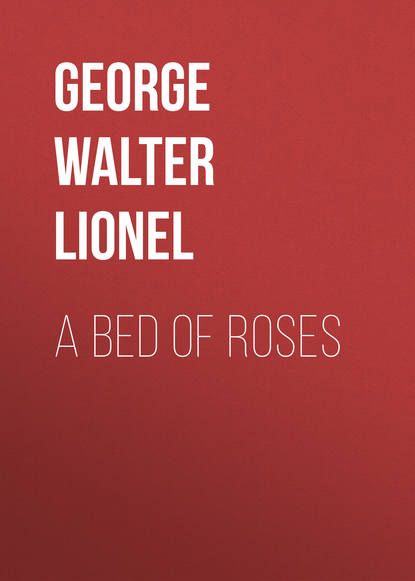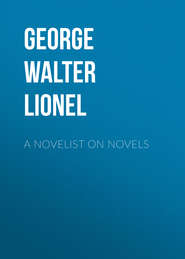По всем вопросам обращайтесь на: info@litportal.ru
(©) 2003-2024.
✖
A Bed of Roses
Настройки чтения
Размер шрифта
Высота строк
Поля
'Very well then,' said Victoria, 'we shall go to Gower Street first. Just wait till I put on my hat.'
She ran upstairs, not exactly light of heart, but pleased with the idea of house-hunting. There's romance in all seeking, even if the treasure is to be found in a Bloomsbury lodging-house.
The ride on the top of the motor bus was exhilarating. The pale sun of November was lighting up the streets with the almost mystic whiteness of the footlights. Edward said nothing, for his memories of London were stale and he did not feel secure enough to point out the Church of the Deaf and Dumb, nor had he ever known his London well enough to be able to pronounce judgment on the shops. Besides, Victoria was too much absorbed in gazing at London rolling and swirling beneath her, belching out its crowds of workers and pleasure seekers from every tube and main street. At every shop the omnibus seemed surrounded by a swarm of angry bees. Victoria watched them struggle with spirit still unspoiled, wondering at the determination on the faces of the men, at the bitterness painted on the sharp features of the women as they savagely thrust one another aside and, dishevelled and dusty, successively conquered their seats. All this, the constant surge of horse and mechanical conveyances, the shrill cries of the newsboys flashing pink papers like chulos at an angry bull, the roar of the town, made Victoria understand the city. Something like fear of this strong restless people crept into her as she began to have a dim perception that she too would have to fight. She was young, however, and the feeling was not unpleasant. Her nerves tingled a little as she thought of the struggle to come and the inevitable victory at the end.
Victoria's spirits had not subsided even when she entered Gower Street. Its immensity, its interminable length frightened her a little. The contrast between it, so quiet, dignified and dull, and the inferno she had just left behind her impressed her with a sense of security. Its houses, however, seemed so high and dirty that she wondered, looking at its thousand windows, whether human beings could be cooped up thus and yet retain their humanity.
Here Edward was a little more in his element. With a degree of animation he pointed to the staid beauty of Bedford Square. He demanded admiration like a native guiding a stranger in his own town. Victoria watched him curiously. He was a good fellow but it was odd to hear him raise his voice and to see him point with his stick. He had always been quiet, so she had not expected him to show as much interest as he did in his old surroundings.
'I suppose you had a good time when you were here?' she said.
'Nothing special. I was too busy at the school,' he replied. 'But, of course, you know, one does things in London. It's not very lively at Cray.'
'Wouldn't you like to leave Cray,' she said, 'and come back?'
Edward paused nervously. London frightened him a little and the idea of leaving Cray suddenly thrust upon him froze him to the bone. It was not Cray he loved, but Cray meant a life passing gently away by the side of a few beloved books. Though he had never realised that hedgerows flower in the spring and that trees redden to gold and copper in the autumn, the country had taken upon him so great a hold that even the thought of leaving it was pain.
'Oh! no,' he said hurriedly. 'I couldn't leave Cray. I couldn't live here, it's too noisy. There are my old rooms, there, the house with the torch extinguishers.'
Victoria looked at him again. What curious tricks does nature play and how strangely she pleases to distort her own work! Then she looked at the house with the extinguishers. Clearly it would be impossible, but for those aristocratic remains, to distinguish it from among half a dozen of its fellows. It was a house, that was all. It was faced in dirty brick, parted at every floor by stone work. A portico, rising over six stone steps, protected a door painted brown and bearing a brass knocker. It had windows, an area, bells. It was impossible to find in it an individual detail to remember.
But Edward was talking almost excitedly for him. 'See there,' he said, 'those are my old rooms,' pointing indefinitely at the frontage. 'They were quite decent, you know. Wonder whether they're let. You could have them.' He looked almost sentimentally at the home of the Wrens.
'Why not ring and ask?' said Victoria, whose resourcefulness equalled that of Mr Dick.
Edward took another loving look at the familiar window, strode up the steps, followed by Victoria.
There were several bells. 'Curious,' he said, 'she must have let it out in floors; Wakefield and Grindlay, don't know them. Seymour? It's Mrs Brumfit's house: Oh! here it is.' He pressed a bell marked 'House.' Victoria heard with a curious sensation of unexpectedness the sudden shrill sound of the electric bell.
After an interminable interval, during which Edward's hands nervously played, the door opened. A young girl stood on the threshold. She wore a red cloth blouse, a black skirt, and an unspeakably dirty apron half loose round her waist. Her hair was tightly done up in curlers in expectation of Sunday.
'Mrs Brumfit,' said Edward, 'is she in?'
''oo?' said the girl.
'Mrs Brumfit, the landlady,' said Edward.
'Don't know 'er, try next 'ouse.' The girl tried to shut the door.
'You don't understand,' cried Edward, stopping the door with his hand. 'I used to live here.'
'Well, wot do yer want?' replied the girl. 'Can't 'elp that, can I? There ain't no Mrs Brumfit 'ere. Only them there.' She pointed at the bells. 'Nobody but them and mother. She's the 'ousekeeper. If yer mean the old woman as was 'ere when they turned the 'ouse into flats, she's dead.'
Edward stepped back. The girl shut the door with a slam. He stood as if petrified. Victoria looked at him with amusement in her eyes, listening to the echoes of the girl's voice singing more and more faintly some catchy tune as she descended into the basement.
'Dead,' said Edward, 'can it be possible – ?' He looked like a plant torn up by the roots. He had jumped on the old ground and it had given way.
'My dear Ted,' said Victoria gently, 'things change, you see.' Slowly they went down the steps of the house. Victoria did not speak, for a strange mixture of pity and disdain was in her. She quite understood that a tie had been severed and that the death of his old landlady meant for Edward that the past which he had vaguely loved had died with her. He was one of those amorphous creatures whose life is so interwoven with that of their fellows that any death throws it into disarray. She let him brood over his lost memories until they reached Bedford Square.
'But Ted,' she broke in, 'where am I to go?'
Edward looked at her as if dazed. Clearly he had not foreseen that Mrs Brumfit was not an institution.
'Go?' he said, 'I don't know.'
'Don't you know any other lodgings?' asked Victoria. 'Gower Street seems full of them.'
'Oh! no,' said Edward quickly, 'we don't know what sort of places they are. You couldn't go there.'
'But where am I to go then?' Victoria persisted. Edward was silent. 'It seems to me,' his sister went on, 'that I shall have to risk it. After all, they won't murder me and they can't rob me of much.'
'Please don't talk like that,' said Edward stiffly. He did not like this association of ideas.
'Well I must find some lodgings,' said Victoria, a little irritably. 'In that case I may as well look round near Curran's. I don't like this street much.'
In default of an alternative, Edward looked sulky. Victoria felt remorseful; she knew that Gower Street must have become for her brother the traveller's Mecca and that he was vaguely afraid of the West End.
'Never mind, dear,' she went on more gently, 'don't worry about lodgings any more. Do you know what you're going to do? you're going to take me to tea in some nice place and then I'll go with you to St Pancras; that's the station you said you were going back by, isn't it? and you'll put me in a bus and I'll go home. Now, come along, it's past five and I'm dying for some tea.'
As Victoria stood, an hour later, just outside the station in which expires the spirit of Constantine the Great, she could not help feeling relieved. As she stood there, so self-possessed, seeing so clearly the busy world, she wondered why she had been given a broken reed to lean upon. Where had her brother left his virility? Had it been sapped by years of self-restraint? Had the formidable code of pretence, the daily affectation of dignity, the perpetual giving of good examples, reduced him to this shred of humanity, so timid, so resourceless? As she sped home in the tube into which she had been directed by a policeman, she vainly turned over the problem.
Fortunately Victoria was young. As she laid her head on the pillow, conscious of the coming of Sunday, when nothing could be done, visions of things she could do obsessed her. There were lodgings to find, nice, clean, cheap lodgings, with a dear old landlady and trees outside the window, in a pretty old-fashioned house, very very quiet and quite near all the tubes. She nursed the ideal for a time. Then she thought of careers. She would read all the advertisements and pick out the nicest work. Perhaps she could be a housekeeper. Or a secretary. On reflection, a secretary would be better. It might be so interesting. Fancy being secretary to a member of Parliament. Or to a famous author.
She too might write.
Her dreams were pleasant.
CHAPTER VI
A week had elapsed and Victoria was beginning to feel the strain. She looked out from the window into the little street where fine rain fell gently as if it had decided to do so for ever. It was deserted, save by a cat who shivered and crouched under the archway of the mews. Sometimes a horse stirred. Through the open window the hot alcaline smell of the animals filtered slowly.
Victoria had found her lodgings. They were not quite the ideal, but she had not seen the ideal and this little den in Portsea Place was not without its charms. Her room, for the 'rooms' had turned from the plural into the singular, was comfortable enough. It occupied the front of the second floor in a small house. It had two windows, from which, by craning out a little, the trees of Connaught Square could be seen standing out like black skeletons against a white house. Opposite was the archway of the mews out of which came most of the traffic of the street. Under it too was the mart where the landladies who have invaded the little street exchange notes on their lodgers and boast of their ailments.
Victoria inspected her domain. She had a very big bed, a little inclined to creak; she had a table on a pedestal split so cunningly at the base that she was always table-conscious when she sat by it; she had a mahogany wash-stand, also on the triangular pedestal loved by the pre-Morrisites, enriched by a white marble top and splasher. A large armchair, smooth and rather treacherous, a small mahogany chest of drawers, every drawer of which took a minute to pull out, some chairs of no importance, completed her furniture. The carpet had been of all colours and was now of none. The tablecloth was blue serge and would have been serviceable if it had not contracted the habit of sliding off the mahogany table whenever it was touched. Ugly as it was in every detail, Victoria could not help thinking the room comfortable; its light paper saved it and it was not over-loaded with pictures. It had escaped with one text and the 'Sailor's Homecoming.' Besides it was restrained in colour and solid: it was comfortable like roast beef and boiled potatoes.
Victoria looked at all these things, at her few scattered books, the picture of Dick and of a group of school friends, at some of her boots piled in a corner. Then she listened and heard nothing. Once more she was struck by the emptiness, the darkness around her. She was alone. She had been alone a whole week, hardly knowing what to do. The excitement of choosing lodgings over, she had found time hang heavy on her hands. She had interminably walked in London, gazed at shop windows, read hundreds of imbecile picture postcards on bookstalls, gone continually to many places in omnibuses. She had stumbled upon South Kensington and wandered in its catacombs of stone and brick. She had discovered Hampstead, lost herself horribly near Albany Street; she had even unexpectedly landed in the City where rushing mobs had hustled and battered her.
Faithful to her resolve she had sedulously read the morning papers and applied for several posts as housekeeper without receiving any answers. She had realised that answering advertisements must be an art and had become quite conscious that employment was not so easy to find as she thought. Nobody seemed to want secretaries, except the limited companies, about which she was not quite clear. As these mostly required the investment of a hundred pounds or more she had not followed them up.
She paced up and down in her room. The afternoon was wearing. Soon the man downstairs would come back and slam the door. A little later the young lady in the City would gently enter the room behind hers and, after washing in an unobtrusive manner, would discreetly leave for an hour. Meanwhile nothing broke the silence, except the postman's knock coming nearer and nearer along Portsea Place. It fell unheeded even on her own front door, for Victoria's ears were already attuned to the sound. It meant nothing.
She walked up and down nervously. She looked at herself in the glass. She was pretty she thought, with her creamy skin and thick hair; her eyes too were good; what a pity her chin was so thick. That's why Dicky used to call her 'Towzer.' Poor old Dicky!
Shuffling footsteps rose up the stairs. Then a knock. At Victoria's invitation, a woman entered. It was Mrs Bell, the landlady.
'Why, ma'am, you're sitting in the dark! Let me light the lamp,' cried Mrs Bell, producing a large wooden box from a capacious front pocket. She lit the lamp and a yellow glow filled the room, except the corners which remained in darkness.
'Here's a letter for you, ma'am,' said Mrs Bell holding it out. As Victoria took it, Mrs Bell beamed on her approvingly. She liked her new lodger. She had already informed the gathering under the archway that she was a real lady. She had a leaning for real ladies, having been a parlourmaid previous to marrying a butler and eking out his income by letting rooms.







